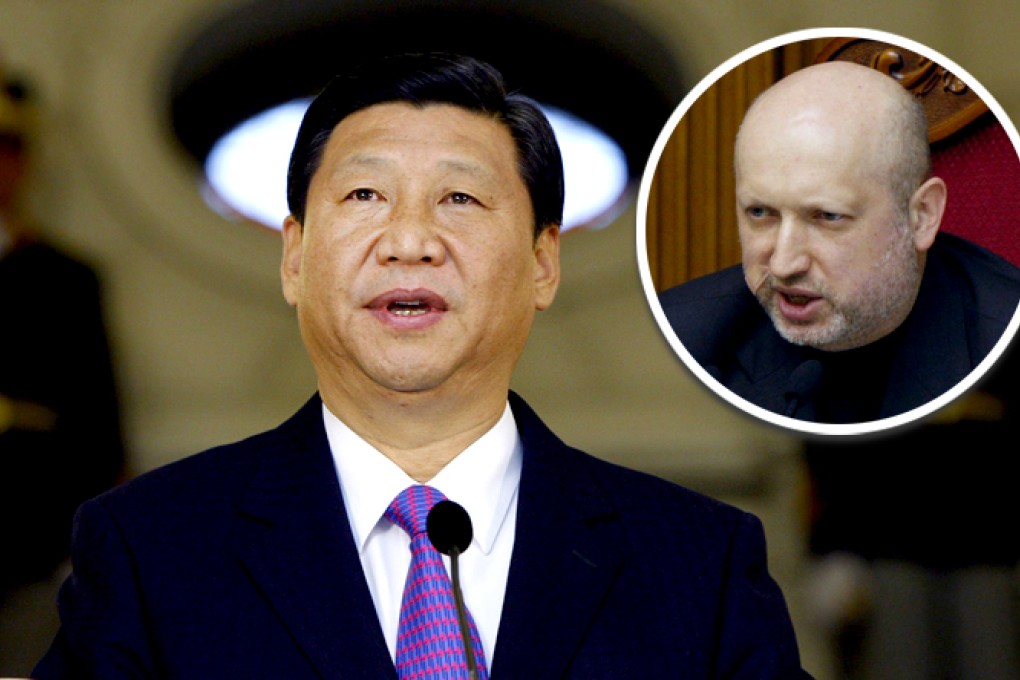Ukraine upheaval puts China arms deals in jeopardy
Military and economic ties could be at risk with Kiev's move towards EU

China's relationship with Ukraine faces an uncertain future with the naming of a pro-Western interim president, according to observers.
The appointment followed three months of protests over a Russian-EU tug-of-war that brought Kiev to a standstill.
At stake are Beijing's military and economic relations with Ukraine, which could face obstacles in the likelihood that Kiev's leaders will turn away from Russia's grip and move closer to the European Union.
Watch: Mixed opinions over Yanukovych's downfall in his Ukraine home town
"This will have a negative impact on co-operation between China and Ukraine in the short run," said Cui Hongjian , director of European studies at the China Institute of International Studies.